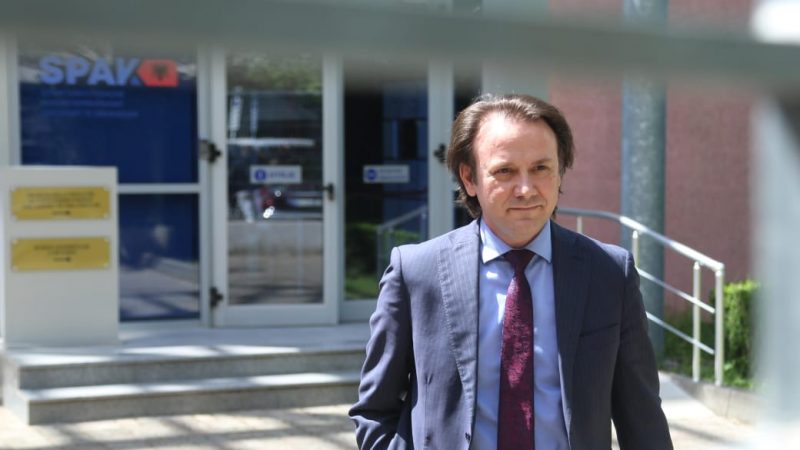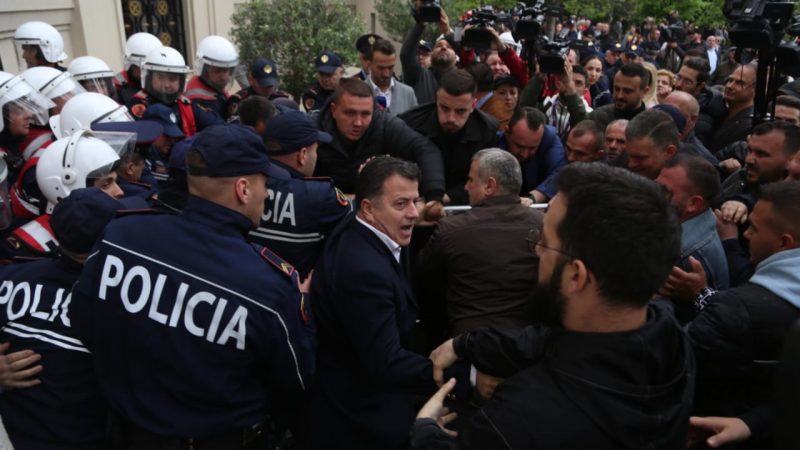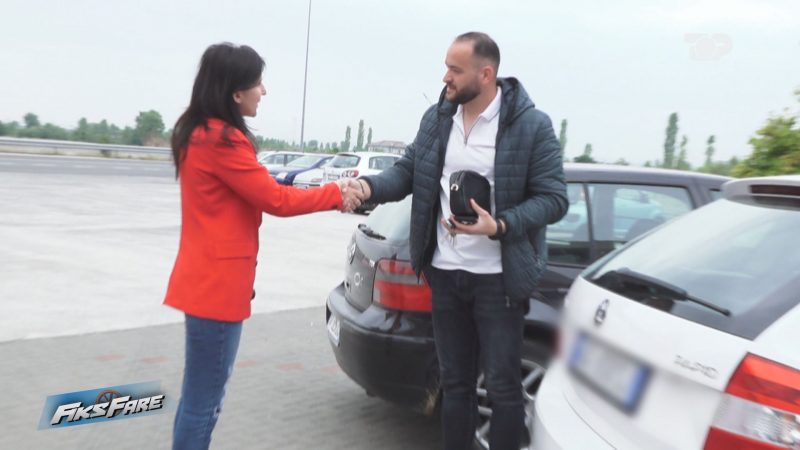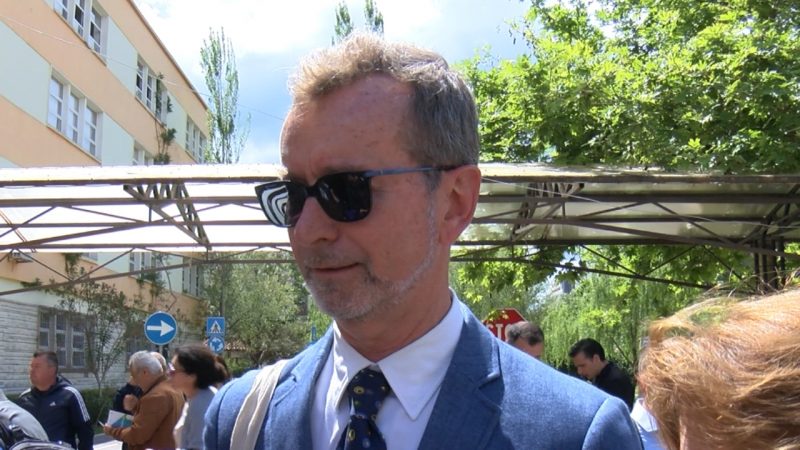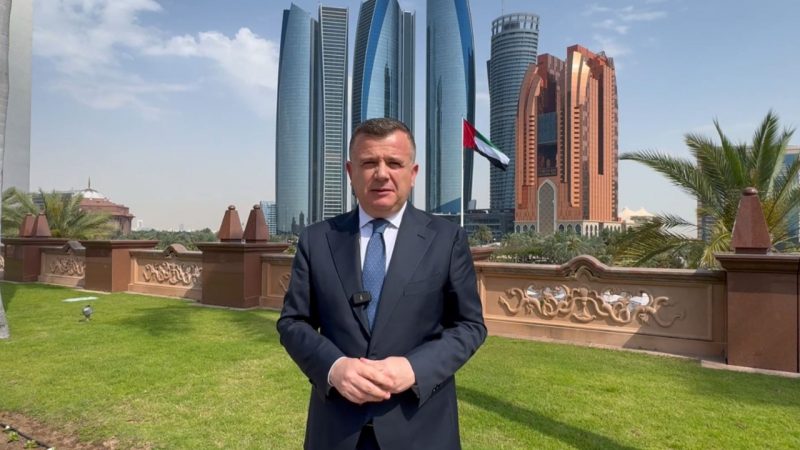 Minister Balla from Abu Dhabi pledges cooperation between the two countries for extraditions and fight against crime
Minister Balla from Abu Dhabi pledges cooperation between the two countries for extraditions and fight against crime
08/09/2011 00:00
The report of the EU Ambassador, Eugen Wollfarth was made public by his
press office in Tirana, focused on the political crisis in the country.
The report says that “only when all parties will start to fully understand what it means to be in the government and in the opposition of a democratic system, Albania will be able to make significant progress”.
The ambassador invited all parties to read the entire final report of the OSCE-ODIHR, and not only the paragraphs that they prefer.
The recommendations of this report need to be translated into a technically healthy electoral reform, widely consulted and as consensual as possible. The report also mentions the January 21st protests, for which he says that were organized by the opposition. But the focus of the investigation should focus on how four people were killed and the identification of the authors. According to the ambassador, this should be the focus of the investigations that up to now have given no concrete result.
The report of Mr. Wollfarth denounces the harsh language of both political parties, not less by the government against the Albanian President and the General Prosecution. This situation prolonged the political stalemate and caused the legislative process to halt in reforms that need more than 35th of the Parliament votes, such as the Electoral Code, the law for the Administrative Court, the law for the judicial conference and the new Ombudsman. The report denounces the corruption of the judicial system and the unnecessary delay of the Gerdec trial, due to the absence of the lawyers at court. According to Wollfarth, this is a clear abuse of the legal process.
Among several other issues, the report mentions the freedom of speech, where this phrase catches the attention: “What we are noticing, is that the government is able to ‘encourage’ some media more than the others, by sharing the public advertisements in a selective way or by using special dispositions for leasing contracts for state owned premises, trying to remove and/or for placing other medias in other state premises”.
The report also lashes the draft-law for the audio and video broadcasts, which is currently being discussed in the Parliamentary Commission. The report mentions serious problems regarding the competences of the supervising institution of the electronic media, due to the politically chosen leaders of this institution. The OSCE presence in Tirana, as reported in the past, has presented its written objections for this draft-law. Since the report is based on the political crisis, it concludes with this sentence: “The upcoming year will determine where the political leaders want Albania’s future – towards reforms, progress and national prosperity, or if they will immerse them in a spiral of delays, stagnation and political rage. It is very simple. Just chose!”
Top Channel
 Minister Balla from Abu Dhabi pledges cooperation between the two countries for extraditions and fight against crime
Minister Balla from Abu Dhabi pledges cooperation between the two countries for extraditions and fight against crime 22/04 21:08



